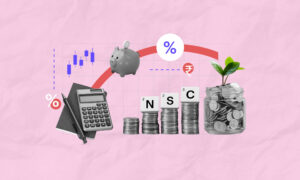
What Exactly Is a Financial Instrument?
Financial instruments are assets that can be traded, or they can be viewed as capital packages that can be traded. Most financial instruments allow for the efficient flow and transfer of capital across the globe’s investors. These assets can include cash, a contractual right to deliver or receive cash or another type of financial instrument, or proof of ownership of an entity.
Financial Instruments: An Introduction
Financial instruments can be physical or virtual documents that represent a legal agreement with any monetary value. Equity-based financial instruments represent asset ownership. Debt-based financial instruments are a loan made by an investor to the asset’s owner.
Foreign exchange instruments are a third and distinct type of financial instrument. Each instrument type has different subcategories, such as preferred share equity and common share equity.
Financial Instrument Types
There are two types of financial instruments: cash instruments and derivative instruments.
monetary instruments
Markets have a direct influence on and determine the value of cash instruments. These can be easily transferable securities.
Cash instruments can also be agreed-upon deposits and loans between borrowers and lenders.
Asset Classifications of Financial Instruments
Financial instruments can also be classified into asset classes based on whether they are debt-based or equity-based.
Financial Instruments Based on Debt
Short-term debt-based financial instruments have a maturity period of one year or less. T-bills and commercial paper are examples of such securities. Deposits and certificates of deposit can be used to fund this type of cash (CDs).
Short-term interest rate futures can be exchange-traded derivatives under short-term, debt-based financial instruments. Forward rate agreements are what OTC derivatives are.
Financial Instruments Based on Equity
Stocks are securities that fall under the category of equity-based financial instruments. Stock options and equity futures are examples of exchange-traded derivatives in this category. Stock options and exotic derivatives are examples of OTC derivatives.
Particular Considerations
There are no securities in the foreign exchange market. Cash equivalents are available in spot foreign exchange, which is the current market rate. Currency futures are exchange-traded derivatives under foreign exchange. Foreign exchange options, outright forwards, and foreign exchange swaps are examples of OTC derivatives.
FAQs
bank service provider?
Ans A bank service provider is defined as a bank service company or another person who provides services to a banking organization governed by the Bank Service Company Act.
Is a savings account a financial instrument?
Ans Savings and checking accounts, certificates of deposit, and money market accounts are all examples of cash instruments. These secure and liquid investments provide modest returns on investment. They also provide financial flexibility because they can be used for emergencies, living expenses, and the purchase of other assets at low-interest rates.
What are financial instruments and their types?
Ans Cheques, bonds, and stocks are basic examples of financial instruments. Securities and commodities are two of the most common asset classes for investment. Financial instruments are classified into three types: cash instruments, derivative instruments, and foreign exchange instruments.
What are the new financial instruments?
Ans New financial instruments include floating rate bonds, zero interest bonds, deep discount bonds, a revolving underwriting finance facility, auction-rated debentures, secured premium notes with detachable warrants, non-convertible debentures with detachable equity warrants, and secured zero interest partially convertible debentures.
Last talks————
Financial instruments are monetary contracts entered into between two parties. They are capable of being created, traded, modified, and settled. They can be money (currency), or evidence of a transaction.




